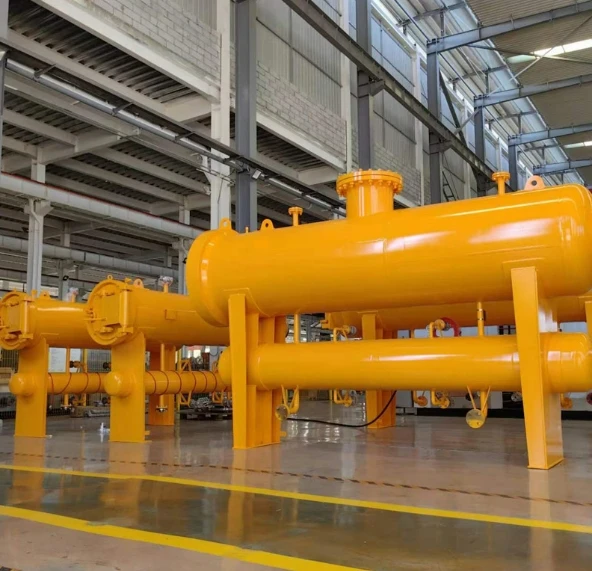
Dec . 22, 2024 17:08
Back to list
filter separator
Understanding Filter Separators An Essential Component in Fluid Processing
In various industrial applications, the efficient separation of different phases in fluid mixtures is a critical requirement. This often involves the need for filter separators, which play a pivotal role in ensuring the purity and quality of the final product. Filter separators are devices designed to remove solid particles from liquid or gas mixtures, allowing for a cleaner and more functional output. This article delves into the working principles, applications, and advantages of filter separators, elucidating why they are indispensable in modern processing industries.
Working Principle of Filter Separators
At their core, filter separators utilize a combination of physical barriers and gravitational forces to segregate contaminants from the desired fluid phase. The process typically begins with the input of a mixture containing both solids and liquids or gases. As the mixture passes through the separator, the larger particles are filtered out by a perforated barrier or filter medium. This filtering process is enhanced by the force of gravity, which helps to settle heavier solids at the bottom of the separator.
In many designs, the separator may also use centrifugal force to improve separation efficiency. By spinning the fluid mixture, denser particles are pushed outward against the walls of the separator, allowing for rapid accumulation of solids that can be easily extracted. This dual-action mechanism—filtration and centrifugal separation—maximizes the purity of the separated product and minimizes downtime associated with maintenance and cleaning.
Applications of Filter Separators
Filter separators find applications across a myriad of industries, including oil and gas, chemical processing, food and beverage, pharmaceuticals, and wastewater treatment. In the oil and gas sector, for example, they are crucial for separating water and impurities from crude oil, ensuring that only clean product is sent for refining.
In the food industry, filter separators are used to clarify juices and oils, removing particulates that can affect taste and quality
. Similarly, in pharmaceuticals, maintaining product integrity through effective filtration is vital, and thus filter separators help eliminate contaminants that can jeopardize safety and efficacy.filter separator

Wastewater treatment facilities also benefit from filter separators, as they significantly enhance the purification process by removing sludge and particulates, making wastewater suitable for release or reuse.
Advantages of Using Filter Separators
The advantages of implementing filter separators are manifold. Firstly, they increase overall processing efficiency by providing a continuous stream of clean product—reducing the need for extensive post-treatment processes. Secondly, by ensuring high levels of separation, filter separators help improve the quality of the final product, which is a critical factor for compliance with industry standards and regulations.
Moreover, these separators can be customized to meet specific application needs, with various filter media and designs available which cater to different particle sizes and fluid viscosities. This adaptability makes filter separators versatile tools applicable in numerous scenarios.
Lastly, filter separators contribute to environmental sustainability by minimizing waste and enhancing resource recovery in processes such as wastewater treatment, where the goal is to recycle as much water as possible.
Conclusion
In conclusion, filter separators are vital components in many industrial processes, from oil and gas extraction to food production and wastewater management. By efficiently separating solids from liquids or gases, they ensure cleaner output and better product quality, while also promoting sustainability in resource usage. As industries continue to evolve and demand higher levels of purity and efficiency, the role of filter separators will undoubtedly become more pronounced, solidifying their status as essential devices within fluid processing environments. Understanding their functionality and benefits not only aids in optimizing production processes but also reinforces the importance of innovation in industrial technology.
Next:
Latest news
-
Safety Valve Spring-Loaded Design Overpressure ProtectionNewsJul.25,2025
-
Precision Voltage Regulator AC5 Accuracy Grade PerformanceNewsJul.25,2025
-
Natural Gas Pressure Regulating Skid Industrial Pipeline ApplicationsNewsJul.25,2025
-
Natural Gas Filter Stainless Steel Mesh Element DesignNewsJul.25,2025
-
Gas Pressure Regulator Valve Direct-Acting Spring-Loaded DesignNewsJul.25,2025
-
Decompression Equipment Multi-Stage Heat Exchange System DesignNewsJul.25,2025

